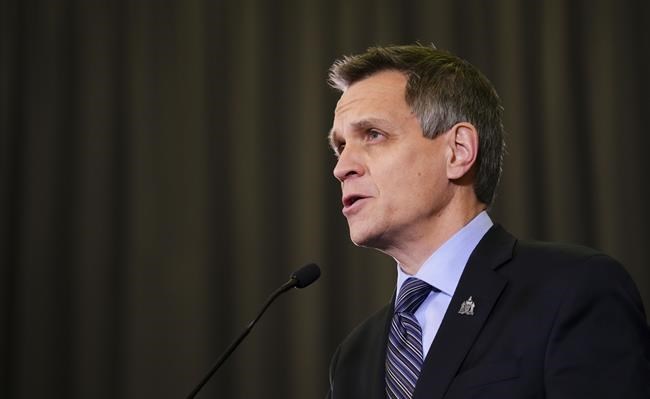OTTAWA — The City of Ottawa released its 2024 draft budget Wednesday, a proposed $4.6-billion operational portfolio that keeps property tax increases capped at 2.5 per cent for the second year in a row.Â
If approved, the budget would allow Mayor Mark Sutcliffe to say he kept his campaign promise to keep rate hikes steady during his first two years in office, despite critics who insist the city needs to keep up with inflation.Â
"We heard complaints from our residents day after day about the declining and degraded quality of our amenities, services and infrastructure," Rideau-Rockcliffe Coun. Rawlson King had warned in the leadup to the budget's release.Â
"At the end of the day, we either pay now or pay later."Â
But Sutcliffe and other councillors who support the limit have argued that taxpayers and homeowners are also facing the pressures of inflation — and that a sudden spike in their tax bills would only make things worse.
"We have all heard from residents that they are struggling with rising costs and worried about the future of our economy," Sutcliffe said Wednesday. "They don't want to see us add to their burden with big tax increases."
The city estimates property taxes will make up about 47 per cent of its total revenue in 2024.Â
The proposed budget also includes $31 million more for public transit and a $21.8-million long-term investment in affordable housing.Â
In total, the city would contribute more than $214 million toward housing, including the capital investment in affordable units and an additional $5 million reserved for transitional housing.Â
Transit and housing are both pressing issues: OC Transpo is projecting a $35-million fare revenue shortfall in 2024, while the city has only issued 30 per cent of the building permits it was supposed to during the first half of this year.
To allow the city to provide relief for its ongoing affordability and social sustainability "crises," its government partners have to do their part, Sutcliffe said.Â
To build more affordable housing, maintain a well-funded public transit system and help those most in need, "we must have more help from our federal and provincial partners," he said.Â
That's especially true given the growing number of people who are arriving in Ottawa in search of asylum, he added.
"There simply is no other way."
About 20 per cent of the city's funding for 2024 will come from other levels of government, city officials say.Â
Along with its operational budget, $1.24 billion is slated to go toward a reserve fund to help cover the cost of long-term investments in areas like infrastructure and transportation.
Funding to community engagement and mental-health outreach teams would increase by $1.8 million if the budget is approved as tabled.Â
The budget also proposes an investment of over $900 million toward renewing city infrastructure such as roads, sidewalks, community centres and sewage plants.Â
Another $27 million found in savings and efficiencies will be reinvested into city priorities, Sutcliffe said.Â
After public consultations, council will vote Dec. 6 on whether to approve the spending plan.Â
This report by The Canadian Press was first published Nov. 8, 2023.Â
Liam Fox, The Canadian Press




